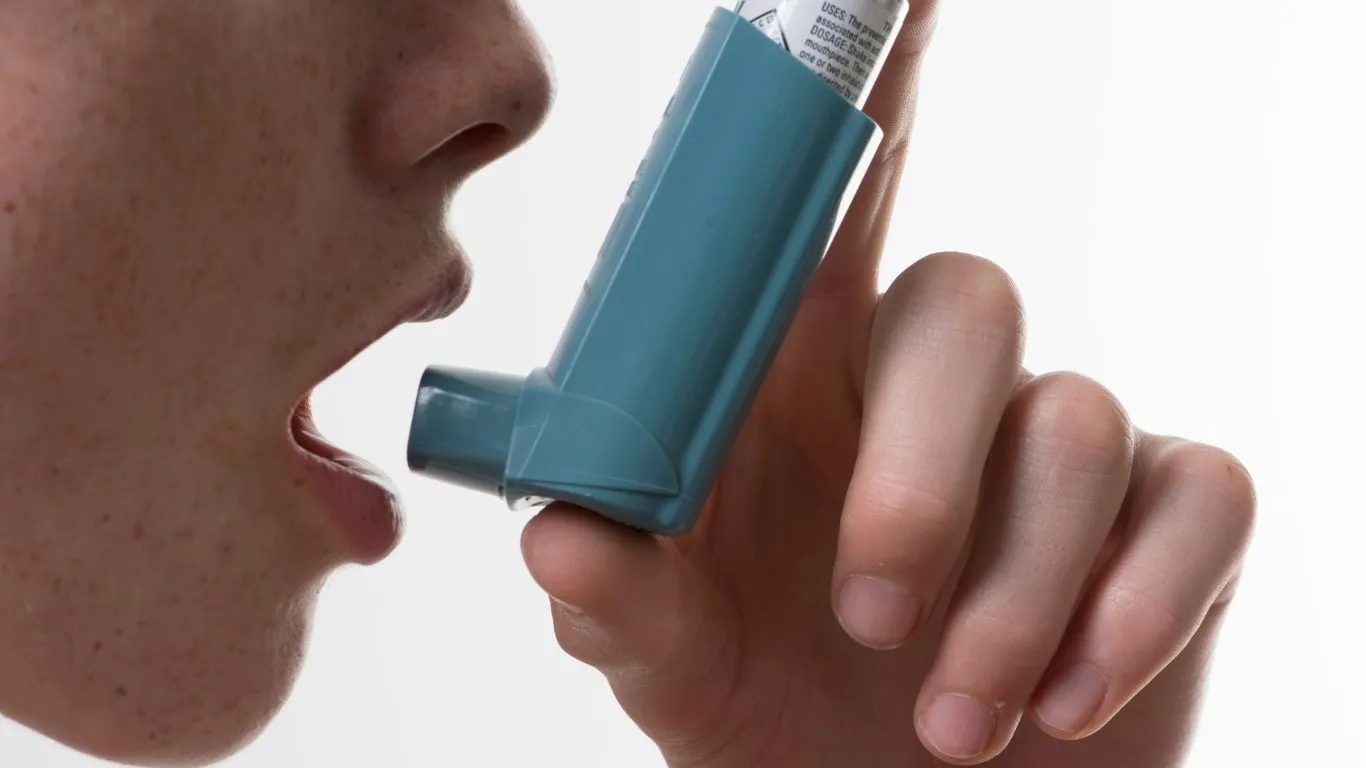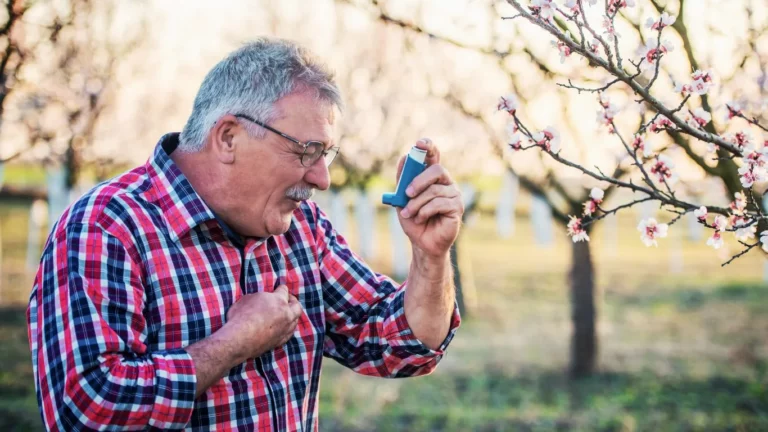Can Asthma Cause Dry Mouth at Night? Shocking Truth & Easy Fixes!
Can asthma cause dry mouth at night? If you’ve ever woken up feeling like your mouth is as dry as a desert, you’re not alone. As someone who has spent years studying and working with asthma patients, I’ve seen this concern come up countless times. The short answer? Yes, asthma and its treatments can contribute to nighttime dry mouth. But why does this happen, and what can you do about it? Let’s break it down in a way that makes sense.
Understanding the Connection Between Asthma and Dry Mouth at Night

Asthma is a chronic condition that affects the airways, causing inflammation and difficulty in breathing. But what does that have to do with dry mouth? A few key factors play a role:
- Mouth Breathing: Many people with asthma struggle to breathe through their nose, especially at night. When you breathe through your mouth, saliva evaporates faster, leading to dryness.
- Medications: If you use an inhaler or take other asthma medications, they might be contributing to dry mouth. Certain bronchodilators and corticosteroids can reduce saliva production.
- Dehydration: People with asthma often experience increased fluid loss, whether due to rapid breathing or side effects of medication. Not drinking enough water throughout the day can make dry mouth worse at night.
How Asthma Medications Can Lead to Dry Mouth

As an asthma specialist, I’ve had many patients tell me, “Ever since I started using my inhaler, I wake up with a dry mouth.” If this sounds familiar, you’re not imagining things.
Inhalers and Saliva Reduction
Most asthma inhalers contain ingredients that help open your airways, but some of them can also interfere with saliva production. Beta-agonists, a common component of bronchodilators, can cause mild dehydration in the mouth. Corticosteroids, often prescribed for long-term asthma control, may also contribute to dryness.
Antihistamines and Their Role
If you have asthma with allergic triggers, you might be taking antihistamines to control symptoms. The downside? These medications are notorious for causing dry mouth by reducing saliva flow.
Why Does Dry Mouth Get Worse at Night?

Ever notice that your dry mouth seems worse in the middle of the night? Here’s why:
- Decreased Saliva Production: Your body naturally produces less saliva while you sleep, making any dryness issues more noticeable.
- Sleeping Position: If you sleep on your back or with your mouth open, airflow dries out your oral tissues even faster.
- Medication Timing: If you take your asthma meds close to bedtime, the drying effects may peak while you sleep.
It’s frustrating, but the good news is that there are ways to manage this problem. In the next section, we’ll explore simple remedies that can help you wake up feeling refreshed instead of parched.
How to Prevent and Manage Dry Mouth Caused by Asthma

Waking up with a parched mouth every morning isn’t just annoying—it can affect your overall well-being. The good news? You don’t have to suffer through it. Over the years, I’ve seen patients successfully manage dry mouth by making a few simple adjustments to their asthma treatment and nighttime routine. Let’s go over some practical ways to keep your mouth feeling comfortable while ensuring your asthma stays under control.
1. Stay Hydrated Throughout the Day
This might sound obvious, but trust me, it makes a huge difference. Many people with asthma unknowingly become dehydrated, especially if they breathe through their mouths a lot. Here’s what I recommend:
- Drink water consistently: Don’t just chug a glass before bed—aim to drink small amounts throughout the day.
- Use a humidifier: A dry bedroom environment can make dry mouth worse. A humidifier helps add moisture to the air, making breathing (and sleeping) much more comfortable.
- Limit caffeine and alcohol intake: Both can be dehydrating, so try to cut back, especially in the evening.
2. Rinse and Gargle Before Bed
If you use an asthma inhaler, it’s crucial to rinse your mouth afterward. Many inhalers contain corticosteroids, which can contribute to dry mouth and even oral thrush if residue lingers. Before bed, try:
- Rinsing with water or a mild mouthwash: This helps wash away any medication residue.
- Using an alcohol-free mouthwash: Many traditional mouthwashes contain alcohol, which can dry out your mouth even more.
Optimizing Your Sleeping Environment for Better Hydration

Creating the right sleep environment plays a huge role in preventing dry mouth at night. Here are some small changes that can make a big difference:
3. Adjust Your Sleeping Position
Your sleep position matters more than you think. If you sleep on your back with your mouth open, you’re allowing even more moisture to escape. Try this instead:
- Sleep on your side: This naturally encourages nasal breathing.
- Use a supportive pillow: Elevating your head slightly can reduce airway obstructions that lead to mouth breathing.
4. Consider Nasal Breathing Solutions
Many asthma patients struggle with nasal congestion, which forces them to breathe through their mouths. If this sounds like you, try:
- Saline nasal spray: This keeps nasal passages clear, making it easier to breathe through your nose.
- Nasal strips: These simple adhesive strips open up your nasal passages, allowing for better airflow.
Asthma Medication Adjustments That May Help

Sometimes, dry mouth is a side effect of asthma medications. If you suspect that’s the case, talk to your doctor about possible adjustments. Here’s what to consider:
5. Ask About Alternative Medications
Not all asthma medications have the same side effects. Some patients find that switching to a different type of inhaler or medication formulation helps reduce dry mouth.
6. Use a Spacer with Your Inhaler
A spacer is a simple attachment that helps deliver medication more effectively while minimizing the amount that stays in your mouth. This can help reduce the drying effects of inhaled medications.
Managing dry mouth caused by asthma is all about making small but effective changes. Up next, we’ll dive into specific home remedies and natural treatments that can provide even more relief.
Natural Remedies to Soothe Dry Mouth at Night

If you’re looking for additional ways to ease dry mouth at night, natural remedies can be a great complement to your asthma management plan. Over the years, I’ve recommended these to my patients, and many have found relief without needing to make drastic changes to their medications.
1. Try Herbal Remedies
Herbs have been used for centuries to promote saliva production and soothe dry mouth symptoms. Here are some that can help:
- Slippery Elm: This herb contains mucilage, a gel-like substance that coats and soothes the mouth and throat.
- Aloe Vera Juice: Drinking a small amount of pure aloe vera juice can help keep the mouth moist and reduce irritation.
- Ginger Tea: Ginger is a natural sialagogue, meaning it encourages saliva flow. A warm cup before bed can be soothing.
2. Chew Sugar-Free Gum or Suck on Xylitol Lozenges
Chewing gum or sucking on lozenges stimulates saliva production. I always recommend using products with xylitol, as it not only helps with dry mouth but also protects against cavities.
3. Use Coconut Oil or Olive Oil for Oil Pulling
Oil pulling is an ancient Ayurvedic practice that can help with dry mouth and oral health. Swishing a spoonful of coconut or olive oil in your mouth for 10-15 minutes before bed can help keep moisture locked in overnight.
4. Honey and Lemon Water
A warm drink made with honey and lemon can be a lifesaver before bed. Honey is a natural humectant, which means it retains moisture, and lemon can stimulate saliva production.
When to See a Doctor About Nighttime Dry Mouth

While occasional dry mouth is manageable, persistent symptoms shouldn’t be ignored. If you’ve tried different strategies and nothing seems to help, it might be time to check in with your doctor. Here are some signs that warrant a visit:
- Frequent waking due to dryness: If dry mouth disrupts your sleep multiple times a night, it’s a sign that something needs to change.
- Difficulty swallowing or speaking: Severe dryness can affect everyday functions like eating and talking.
- Chronic bad breath: A lack of saliva allows bacteria to thrive, leading to persistent halitosis.
- Increased tooth decay or gum problems: Saliva helps protect against cavities and gum disease. If your oral health is declining, dry mouth may be the culprit.
Potential Medical Solutions
If lifestyle changes and home remedies don’t provide enough relief, your doctor might recommend:
- Saliva substitutes: There are over-the-counter sprays and rinses designed to mimic natural saliva.
- Prescription medications: In some cases, medications like pilocarpine can help stimulate saliva production.
- Adjusting your asthma treatment: If your medication is a major contributor to dryness, your doctor may explore alternative options.
Final Thoughts
So, can asthma cause dry mouth at night? Absolutely. But the good news is that it’s a manageable issue once you understand the root causes. By staying hydrated, making small changes to your nighttime routine, and exploring natural remedies, you can minimize discomfort and sleep more peacefully.
Remember, if your dry mouth persists or worsens, don’t hesitate to seek professional guidance. Your health—and your sleep—deserve attention.
References
Disclaimer
This article is for informational purposes only and should not be considered medical advice. Always consult with a healthcare professional before making changes to your asthma treatment or trying new remedies.

Bianca Nala is a compassionate Nurse Practitioner with a strong background in primary and respiratory care. As a health writer for Healthusias.com, she combines her clinical expertise with a talent for clear, relatable storytelling to help readers better understand their health. Bianca focuses on topics like asthma, COPD, chronic cough, and overall lung health, aiming to simplify complex medical topics without losing accuracy. Whether she’s treating patients or writing articles, Bianca is driven by a single goal: making quality healthcare knowledge accessible to everyone.







